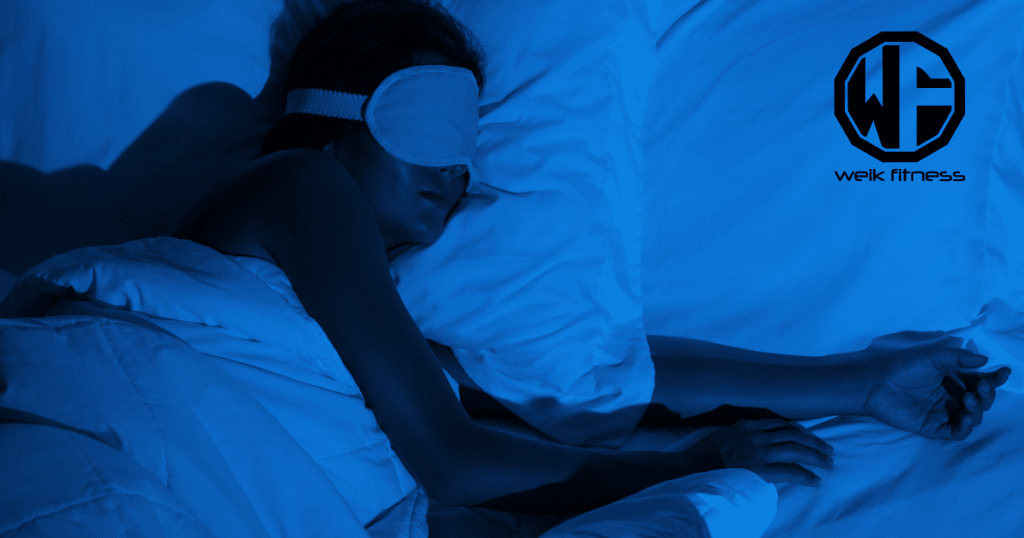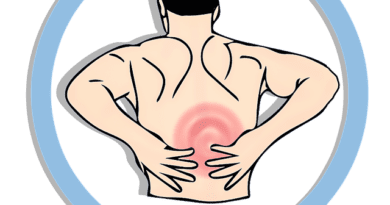5 Ways You Can Get a Better Night’s Sleep Starting Tonight
Have you ever tossed and turned all night long, only to hear your alarm clock go off without your eyes ever closing? You’re not alone. There are many people out there who suffer from poor quality sleep. If you want to get a better night’s sleep, try out the five strategies below.
If you find yourself never seeming to get enough sleep, there might be more to it than simply restlessness. This article will showcase several different reasons that could be causing you to stay awake at night and how you can get a better night’s sleep.
Note: For overall health benefits (both mental and physical), you want to strive for a minimum of seven hours of quality sleep each night.
Disclaimer: This article is for informational purposes only and is not meant to treat or diagnose any condition. It is recommended that you speak with your doctor before starting any exercise program, changing your daily nutrition, or adding any supplements to your regimen.
Table of contents

Why Should I Care About Getting a Better Night’s Sleep?
Getting a better night’s sleep is crucial for your overall health and well-being. Below are several reasons why you should care about improving your sleep:
- Physical Health: Quality sleep is essential for your physical health. It plays a vital role in healing and repairing your heart and blood vessels. Chronic sleep deprivation has been linked to a higher risk of developing conditions like heart disease, high blood pressure, diabetes, and obesity.
- Mental Health: Sleep is closely linked to your mental well-being. Inadequate sleep can contribute to mood disorders like depression and anxiety. It can also impair your cognitive functions, making it difficult to concentrate, make decisions, and think clearly.
- Immune System: A good night’s sleep helps strengthen your immune system. During deep sleep stages, your body produces cytokines, proteins that help fight off infection and inflammation. If you don’t get enough rest, your immune system may not function optimally.
- Memory and Learning: Sleep is crucial for memory consolidation and learning. When you sleep, your brain processes and organizes information from the day, helping you retain knowledge and improve problem-solving skills. Lack of sleep can hinder these cognitive processes.
- Emotional Well-Being: Quality sleep can help regulate your emotions. A well-rested individual is better equipped to handle stress and regulate their mood. Sleep deprivation, on the other hand, can make you more irritable, moody, and emotionally reactive.
- Physical Performance: If you’re an athlete or engage in physical activities, sleep is essential for optimal performance. Sleep helps with muscle recovery, coordination, and reaction time. Athletes often see improvements in their performance when they prioritize good sleep.
- Productivity and Focus: Adequate sleep is essential for productivity and focus in your daily life. When you’re well-rested, you can think clearly, stay alert, and be more efficient in your work or daily tasks. Sleep-deprived individuals often struggle with concentration and productivity.
- Safety: Sleep deprivation can impair your judgment and reaction time, making you more prone to accidents, whether you’re driving a car or operating machinery. Drowsy driving, in particular, is a significant safety concern.
- Longevity: Some studies have suggested a link between consistent, good-quality sleep and a longer life. While more research is needed in this area, getting enough sleep may contribute to a healthier and longer life.
- Quality of Life: Overall, better sleep leads to a better quality of life. When you’re well-rested, you have more energy, enjoy life more, and can engage in activities you love without feeling fatigued or sluggish.
To reap the benefits of improved sleep, it’s essential to establish good sleep habits, maintain a consistent sleep schedule, create a comfortable sleep environment, and manage stress. Prioritizing your sleep can have a profound positive impact on your health and overall well-being.
Try These Methods to Get a Better Night’s Sleep Tonight

Below are five methods you can implement to help you get a better night’s sleep:
1. Make your bedroom colder
If your bedroom is like a sauna, there is absolutely no way you’re going to fall asleep. Our bodies tend to respond better to a colder temperature during our sleep phase, which is why you probably find it easier to fall asleep and stay asleep when your bedroom temperature is slightly below where it normally is during the day.
To achieve this, turn down the thermostat, turn on a fan, or even open a window if need be. Something else you can do is reduce the number of covers you use when you sleep.
2. Make sure it’s completely dark
Another way to get a better night’s sleep is to make sure your bedroom is dark. When I say dark, I mean completely dark. Any type of light that is in your room can keep you awake. Therefore, it might be wise to invest in some blackout blinds or thick curtains if you find light penetrating your bedroom from your windows or some type of eye mask like the Manta Sleep Mask that covers your eyes and blocks out any light.

3. Turn off your phone
Some of you are obsessed with your phone. So much so that you probably sleep with it like it’s a teddy bear. Turn it off. Seriously. I know you may feel a little odd, and FOMO might set in, but I promise you, nothing on social media or an email that comes through is worth reading at 2am. If someone really needs you in the middle of the night (such as an emergency), they’ll call your house.
Related Article: Change Your Sleep Position and Wake Up Without Back Pain
Your phone won’t ding, ring, buzz, or beep when it’s turned off. At the very least, turn off all notifications and the volume on your phone, so there are zero interruptions from your phone while sleeping. If you wish, set a bypass on your phone to allow important people (like family) to be able to reach you in case of an emergency.
4. Eliminate any noise
You may find you have noisy neighbors, live on a busy street, or have that annoying dog that lives next to you who doesn’t understand it needs to stop barking outside at 1:30am. If you’re reading this and can relate, you definitely need to consider a sound machine or the use of earplugs to get a better night’s sleep. Just make sure whatever method you use does not drown out the sound of smoke detectors or other emergency notification devices in your home (such as carbon monoxide detectors).
5. Change what you wear to bed
If you wear constrictive clothing to sleep in, you may find it a much better option to change into something a little looser fitting. When you’re wrapped in pajama pants or a shirt that makes you feel like a sausage, it can be difficult to get comfortable. Therefore, if you want a better night’s sleep, try to find a baggy shirt and pants/shorts, or even better (and assuming you’re comfortable doing so), sleep in your undergarments or even naked. Changing what you wear to bed can also help you stay cool, which ties in nicely with #1 on our list.


*Disclosure: This article may contain affiliate links or ads, which means we earn a small commission at no extra cost to you if you make a purchase through these links. These commissions help support the operation and maintenance of our website, allowing us to continue producing free valuable content. Your support is genuinely appreciated, whether you choose to use our links or not. Thank you for being a part of our community and enjoying our content.
PLEASE CONSIDER SHARING THIS ON YOUR SOCIAL MEDIA TO HELP OTHERS LEARN MORE ABOUT THIS TOPIC.





